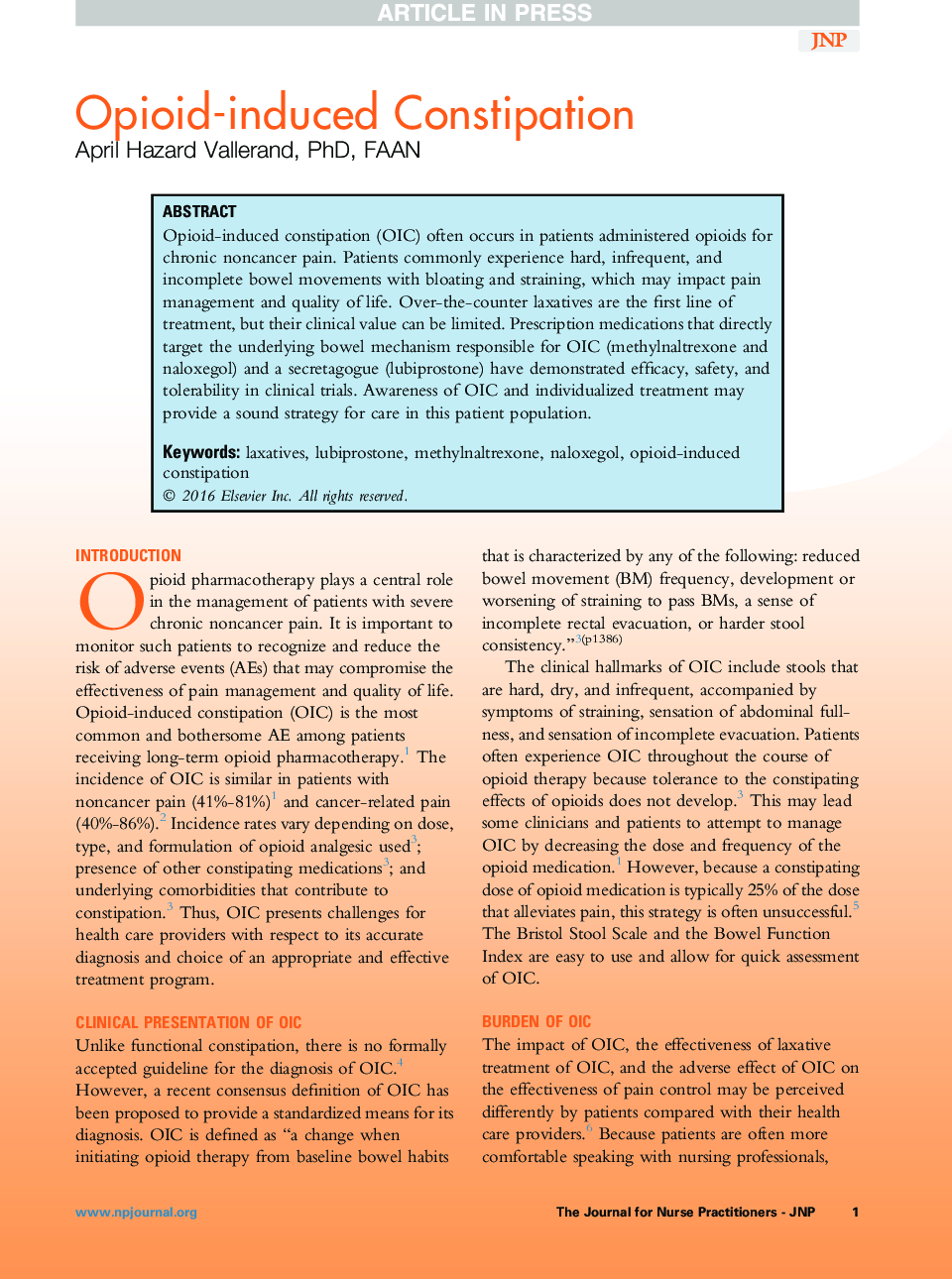| Article ID | Journal | Published Year | Pages | File Type |
|---|---|---|---|---|
| 5569728 | The Journal for Nurse Practitioners | 2017 | 8 Pages |
Abstract
Opioid-induced constipation (OIC) often occurs in patients administered opioids for chronic noncancer pain. Patients commonly experience hard, infrequent, and incomplete bowel movements with bloating and straining, which may impact pain management and quality of life. Over-the-counter laxatives are the first line of treatment, but their clinical value can be limited. Prescription medications that directly target the underlying bowel mechanism responsible for OIC (methylnaltrexone and naloxegol) and a secretagogue (lubiprostone) have demonstrated efficacy, safety, and tolerability in clinical trials. Awareness of OIC and individualized treatment may provide a sound strategy for care in this patient population.
Related Topics
Health Sciences
Medicine and Dentistry
Medicine and Dentistry (General)
Authors
April Hazard PhD, FAAN,
